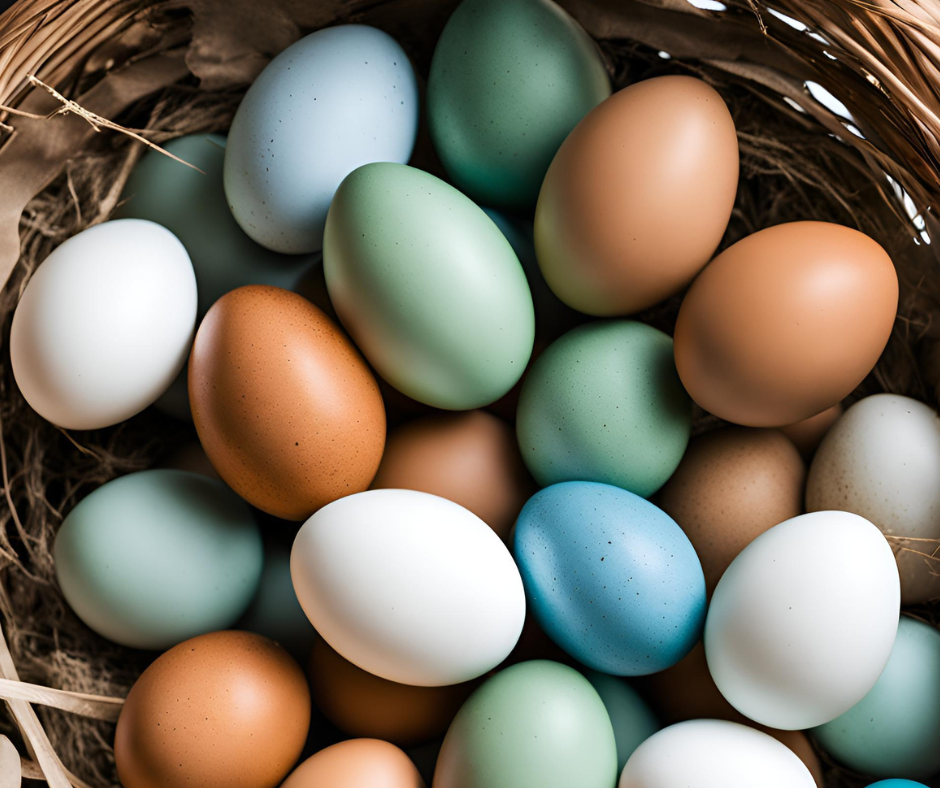
Common Reasons Hens Stop Laying Eggs
Egg Laying Problems? Common Issues and How to Fix Them
Raising backyard chickens can be a rewarding experience, but it can also be frustrating when your hens suddenly stop laying eggs. If you've noticed a drop in egg production, don't worry—there are several common reasons why this happens, and most have natural solutions. In this post, we’ll explore the potential causes of reduced egg laying and how to encourage your flock to start producing again.
Common Reasons Hens Stop Laying Eggs
1. Molting
Molting is a natural process where chickens shed old feathers and grow new ones, typically occurring in the fall. During this time, hens redirect their energy from egg production to feather growth.
Solution: Ensure your hens get plenty of protein-rich feed (such as mealworms, scrambled eggs, or a high-protein layer feed) to help them regrow feathers and get back to laying sooner.
2. Decreased Daylight Hours
Chickens require around 14-16 hours of daylight to maintain optimal egg production. During shorter winter days, they may naturally slow down or stop laying altogether.
Solution: Consider supplementing with artificial lighting in the coop to provide a consistent 14-16 hours of light daily. Use a timer to ensure a natural sunrise and sunset effect.
3. Nutritional Deficiencies
A lack of essential nutrients, especially calcium, protein, and omega-3s, can lead to poor egg production.
Solution: Provide a high-quality layer feed, supplement with crushed oyster shells for calcium, and offer occasional treats like leafy greens and sunflower seeds to boost nutrition.
4. Stress and Environmental Changes
Hens are sensitive to stress, which can stem from predator threats, coop relocations, overcrowding, or extreme weather changes.
Solution: Keep their environment calm and secure. Ensure adequate space, protection from predators, and minimal disruptions to their routine.
5. Broodiness
A broody hen stops laying because she is focused on hatching eggs, even if she doesn’t have any fertilized ones.
Solution: If you don’t want chicks, gently discourage broodiness by collecting eggs frequently, blocking off nesting boxes at night, or placing the hen in a well-ventilated wire cage for a few days to cool down her broodiness.
6. Illness or Parasites
Internal parasites, mites, respiratory infections, or other health issues can reduce egg production.
Solution: Regularly check your flock for signs of illness, such as weight loss, lethargy, or abnormal droppings. Use natural dewormers like pumpkin seeds or diatomaceous earth and maintain a clean coop to prevent infestations.
7. Old Age
As hens age, their egg production naturally slows down. Most hens lay the most eggs in their first two years, with production tapering off after that.
Solution: While there’s no way to reverse aging, you can still provide a comfortable home for older hens and allow them to contribute in other ways, such as pest control in the garden.
Encouraging Egg Production Naturally
- Maintain a Balanced Diet – Ensure your flock gets proper nutrition to support egg production.
- Optimize Coop Conditions – Keep the coop clean, well-ventilated, and stress-free.
- Ensure Fresh Water – Hydration is essential for laying hens.
- Let Them Forage – Free-ranging gives hens access to natural nutrients and improves their health.
- Use Natural Supplements – Apple cider vinegar, garlic, and herbs like oregano can support immune health and overall well-being.
By understanding the common reasons why hens stop laying and applying these natural solutions, you can help keep your flock happy, healthy, and productive. Have you faced egg-laying issues with your hens? Share your experiences and solutions in the comments!
